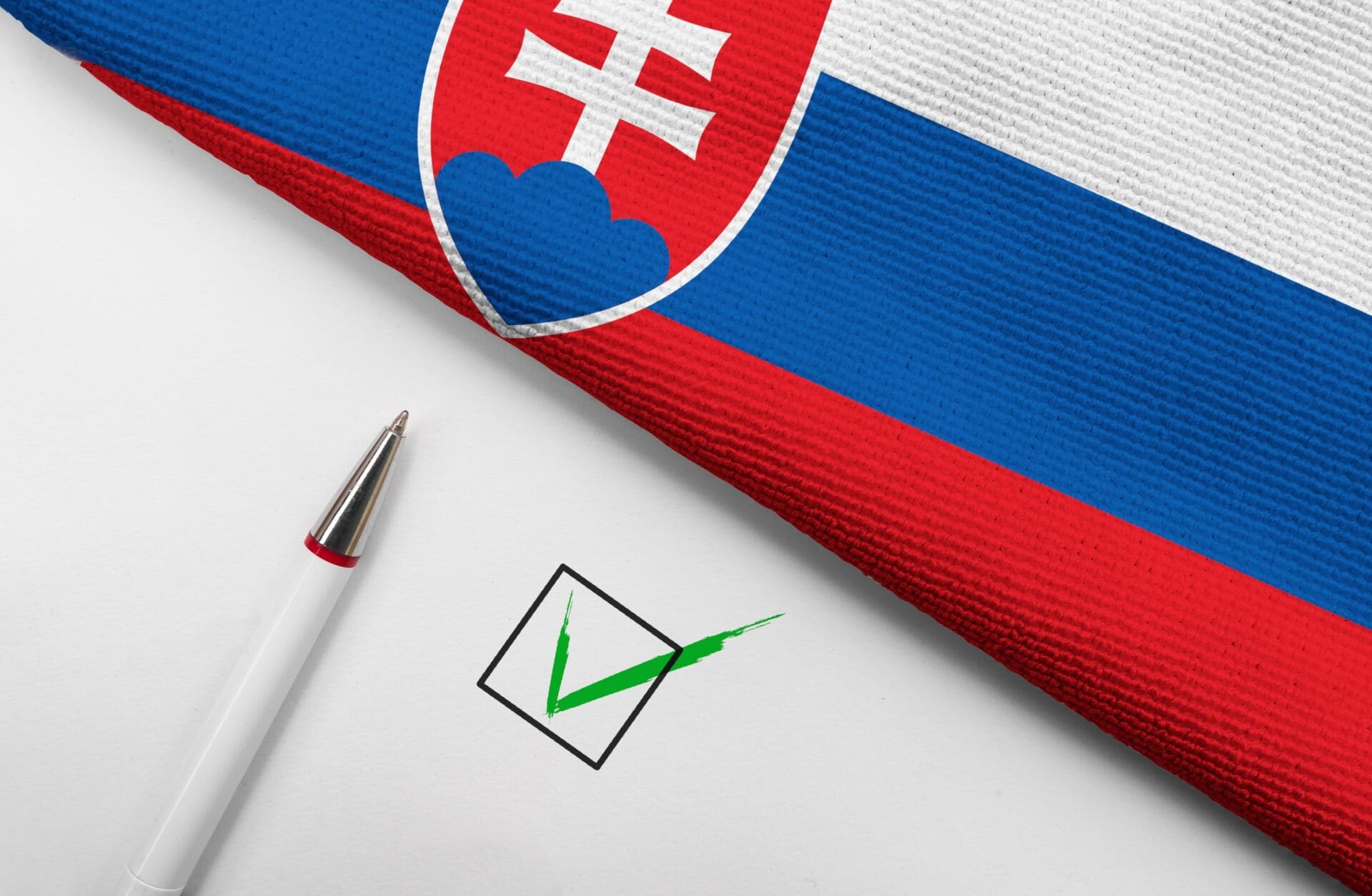The last parliamentary elections in Slovakia in February 2020 brought about great political disappointment for ethnic Hungarians living in the country. 2020 was the first year in modern Slovakian history when no Hungarian party was elected to the Slovak parliament.
While there were no successes on the party level, overall, the Slovakian national assembly was not left without ethnic Hungarians. The Ordinary People and Independent Personalities party that won the elections three years ago sent two Hungarians, Gábor Grendel and György Gyimesi to Bratislava. The government elected upon the promise of combating corruption soon faced challenges to its rule, however, as Prime Minister Igor Matovič resigned in 2021, while Eduard Heger (Prime Minister since April 2021, acting prime minister since December 2022), who took over Matovič’s role, also lacks the support needed to run the government. As a result of the government’s collapse, Slovakia will have early elections in September—giving Hungarian parties a chance to re-enter parliament. Hungarian parties are already negotiating to ensure that in this year’s elections the Hungarian minority does end up with representation in Bratislava.
Hungarian Parties in Slovakia Since the 1990s
Hungarian minority parties have been present in Slovakia ever since the first multiparty elections in the country after the fall of the Berlin Wall. In the first general election in Slovakia, Hungarian minority parties competed as a coalition,
winning over ten per cent of the votes.
By the 1998 election, however, coalition alliance lists were banned by law in Slovakia. The legislation made it difficult for small Hungarian minority parties, also competing with each other, to meet the five per cent threshold required to enter the Slovak parliament. In order to ensure the political representation of Hungarians, a new, united Hungarian party was established in Slovakia that year, under the name of Hungarian Coalition Party (MKP). In the coming decades, the party had a stable, ten per cent electoral support, and gave four ministers and six state secretaries to Slovakia. As the ruling party lost the elections, and MKP was forced into opposition, the Hungarian Coalition Party broke up in 2009 and a new Hungarian minority party was established, called Bridge (Most–Híd).
Swiftly replacing the shrinking MKP party, which failed to meet the five per cent threshold to enter parliament,
in 2010 Most–Híd became popular among the electorate, gaining 14 seats.
One of the novelties of Most–Híd was to emphasize cooperation between Hungarians and Slovakians in wanting to shape a better future for the country. The subsequent elections, up until 2020, brought about similar successes to the Bridge party, ensuring the steady parliamentary representation of the Hungarian minority in Slovakia. The decline in Bridge’s popularity showed itself only in 2019. While from 2004 onwards (the year of Slovakia’s EU accession) Slovakian Hungarians were always present in the European Parliament, in the 2019 EP elections no ethnic Hungarian party managed to sent a representative to the EP. While Most–Híd gained over six per cent of the votes in 2016, in 2020 only two per cent of the electorate supported the party, thereby, failing to enter the parliament after failing in the European elections as well. As the declining support of Most-Híd became obvious in 2019, the Hungarian minority attempted to establish a new party (Unity or Összefogás) for the 2020 election, but this party turned out to be as unpopular as Most–Híd. Had these parties cooperated, however, they could have secured around 5.9 per cent of the votes, exceeding, albeit barely, the parliamentary threshold.
2020 Electoral Loss: A Wake-Up Call to Tighten Cooperation
The unprecedented electoral loss in 2020, that
left the Hungarian minority in Slovakia without representation for the first time in Slovakian history, was a wake-up call, however.
After months of intense negotiations, by 2021 the three small Hungarian parties, MKP, Bridge and Összefogás signed an agreement of cooperation creating the Alliance (Szövetség). To reconcile the interests of the three forming parties, all three have their platforms and presidents within the party, that is headed by one mutually agreed on figure. The fruits of the cooperation soon showed themselves. On the 2022 regional and municipal elections the Aliancia–Szövetség performed remarkably well. During the 2022 elections two administrative bodies were elected simultaneously–mayors, town councillors as well as regional governors.
Three of the eight Slovakian counties had a Hungarian candidate for the post of regional governor. The Hungarian minority, living manly along the southern borders of Slovakia, is present in four of the eight counties of the country, but they do not form a majority in either of them. Although none of the three ethnic Hungarian regional governor nominees were elected, a Hungarian-backed candidate in Košice (Kassa) did win the position. Furthermore, Aliancia–Szövetség, secured 13 per cent of the available seats, in other words, Szövetség now has 54 representatives Slovakia-wide. The successes Szövetség has secured on the regional level demonstrate both the potential in Hungarian self-organisation in Slovakia as well as the fact that Szövetség is a fertile framework for Hungarians to stand up for their interests. While in terms of winning seats Szövetség exceeded many pre-election expectations, with regard to the number of votes (corrected for the demographic changes) that Hungarian parties secured since 2020 has declined compared both to the 2013 and the 2017 elections.
While there is a high chance that the Hungarian community will again be represented in the Slovakian parliament
following the early elections, there are some issues within Aliancia that might stand in the way of political success. First of all, the platform-based structure of the party (that allows the three member parties, MKP, Összefogás and Bridge to maintain their ´subcultures´ within the cooperation) can certainly lead to some trouble. The current president of Szövetség, Krisztián Forró (of MKP) was earlier accused of wanting to restructure the platform-based Szövetség to put his party into a more advantageous situation. While his efforts were resisted, keeping the platform-based structure can also lead to discoordination and poor management—neither of which serves the interests of the Hungarian community in Slovakia.
Despite the concerns about Szövetség’s party structure, there are also some positive developments in Slovakia ahead of the early elections. The Hungarian Forum, established in 2019 and competing in the 2020 elections as part of MKP, is now negotiating with Szövetség to coordinate their nominations. As of now, it seems Hungarian Forum is not planning to merge with Szövetség, but the party did express its intention to create a joint list with it. While initially Szövetség resisted the idea, as it wished to be a unifying platform for all Hungarians regardless of political affiliation, last week, the two parties finally agreed on changing Szövetség’s name to Szövetség – Magyar Fórum (Alliance – Hungarian Forum), thereby, making a leap towards ensuring one joint list for all Slovakian Hungarians to vote for in September.
While the Hungarian parties in Slovakia undoubtedly have internal battles ahead of them until the elections in September,
the willingness for cooperation and compromise that they have demonstrated since 2020 is a promising sign.
A challenge the three members of Szövetség plus Magyar Fórum need to overcome is coordinating the composition of their joint list, where clearly each party would like to see their members at the top. Political battles and the interests of each party should however not get in the way of the overarching goal—to have a Hungarian presence in the Bratislava parliament. Some 8 to 10 per cent of the Slovakian population is ethnically Hungarian, so the size of this community makes it a considerable political force, whose potential should be maximised, and not wasted. In addition, around 80 per cent of the voter base of both Szövetség and Magyar Fórum strongly supported the cooperation between the two parties, meaning that it is certainly mutually beneficial to continue the election alliance talks in the coming weeks, too.
Related articles:








